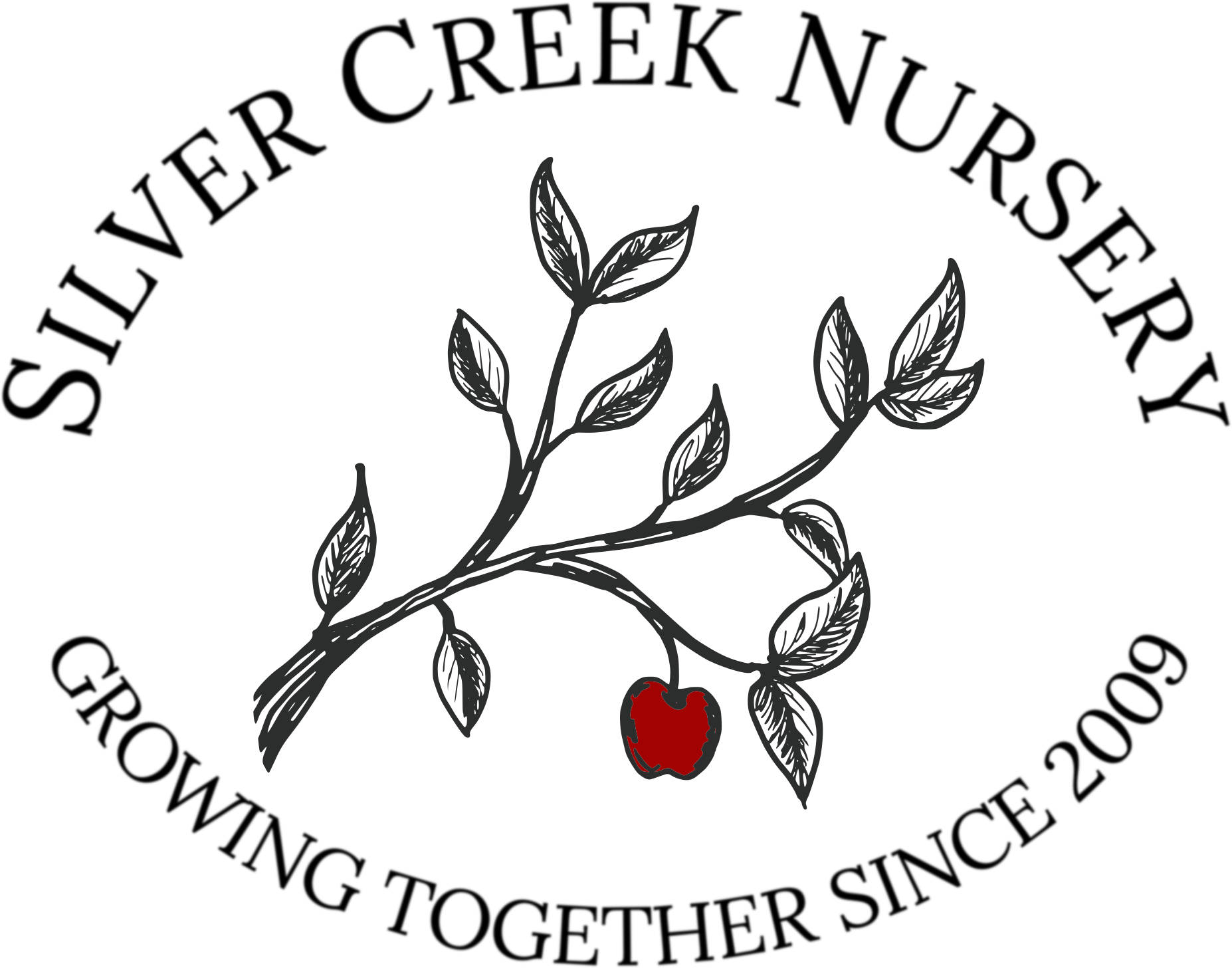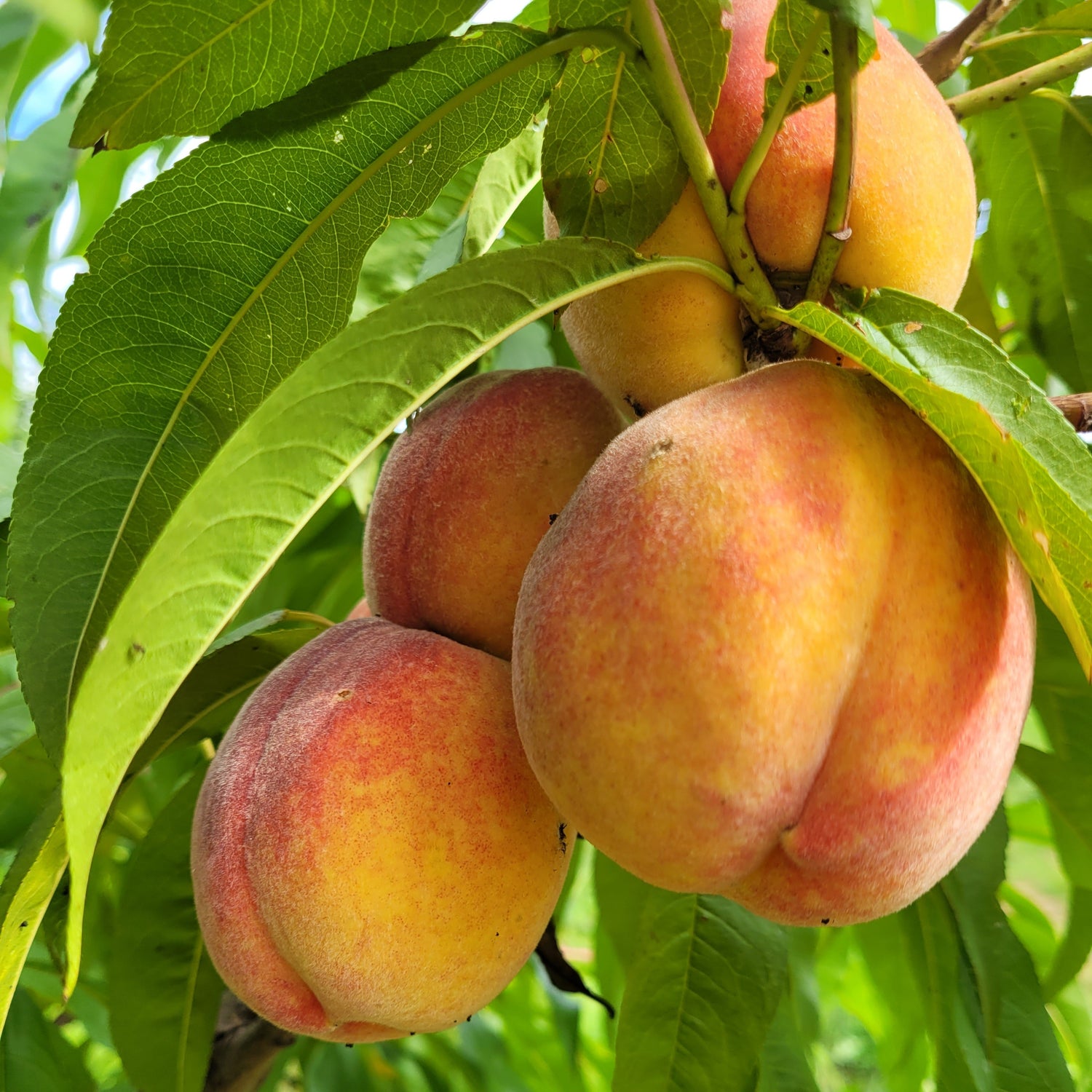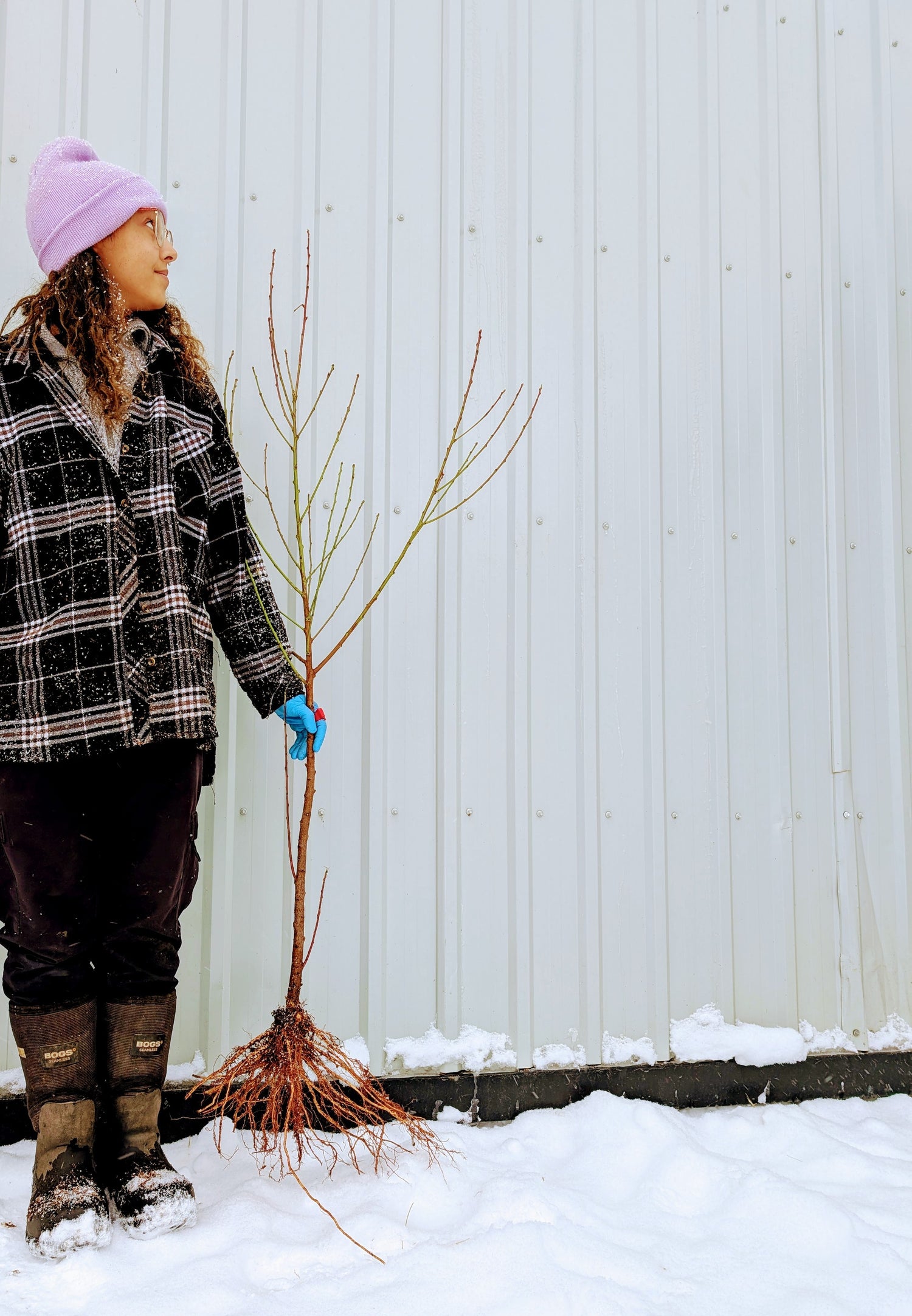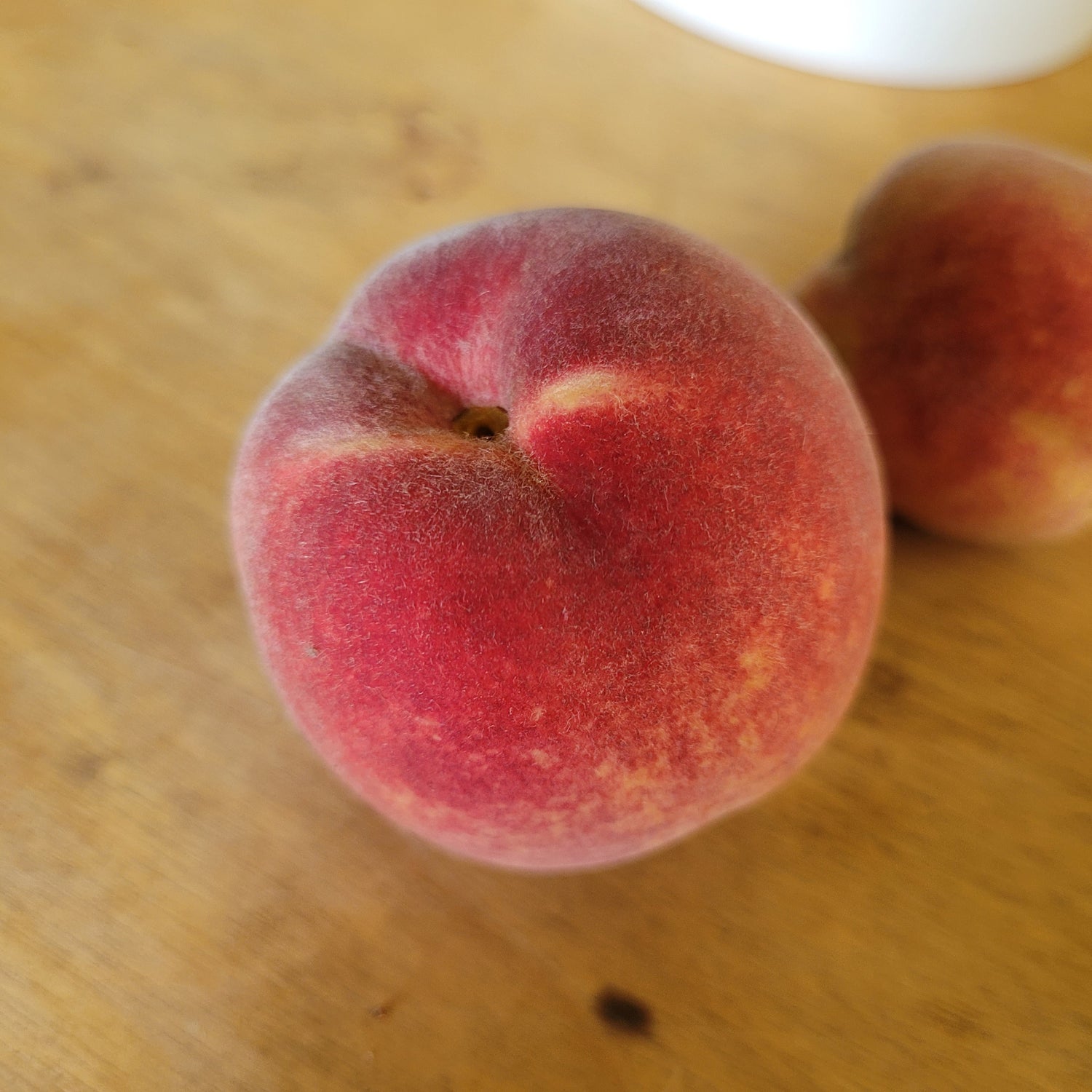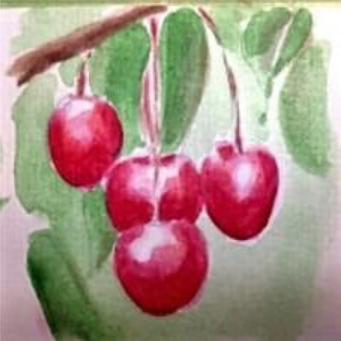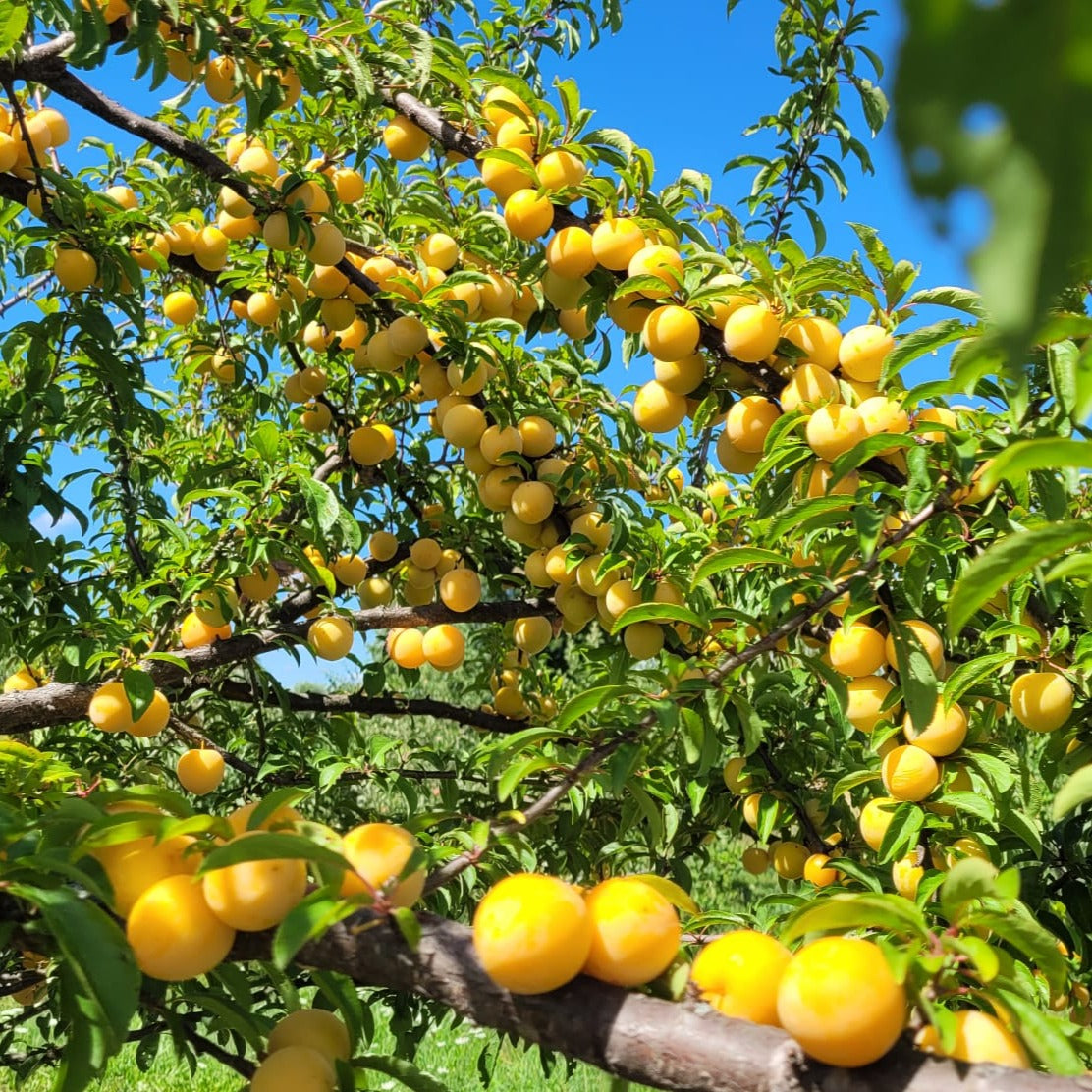Fruit Tree Seedlings (ungrafted)
Let's get a little more diverse! We are happy to see a growing interest in folks growing seedlings! They are an excellent way to increase diversity for both nature and your palate!
Seedling fruits may share some characteristics with their mother plant but there will be natural variation creating a unique plant with every seed, as unique as the differences between you and me. Remember when planting seedlings it's best to plant a few (2-3) for pollination. They typically take longer to come into bearing compared to grafted stock too.
Some species (eg. Prunus) stay fairly close to their mother tree, while others (eg. Malus) will be vary significantly.
Sort by:
30 products
30 products
Available only for pick-up at nursery.
Species: Prunus avium
History: These seedlings are grown from seeds from sweet cherries sourced in Ontario.
Why We Grow It: These seedlings will likely stay more true to type than apples which means you'll be enjoying some lovely sweet cherries in a few years' time! Alternatively, if you prefer growing named varieties, these seedlings would also be great wildlife trees or can be planted to attract birds and squirrels away from other fruit trees.
We have the following seedlings available:
- Niagara Sweet Dark Cherry
- These seedlings are grown from deep purple sweet cherries from Palatine in the Niagara region.
- Lapins Sweet Cherry Seedling
-
These are seedlings of Lapins and will likely bear some resemblance to their parent variety. Lapins was released in the 1980s from the Summerland Research Station in British Columbia and was initially quite popular. It is similar to Bing with a pleasant, mild flavour.
Available only for pick-up at nursery.
Species: Asimina triloba
History: Native to southern Ontario where it is considered a vulnerable species and the central United States, it is believed the range of these trees has shrunk with the extinction of megafauna that likely dispersed the seeds. These oddly tropical fruits have been cultivated by indigenous peoples and European colonizers alike, it is rumoured chilled pawpaw was George Washington's favourite dessert and Thomas Jefferson planted some at Monticello. Although popular among locals and with foragers, pawpaws have failed to achieve any kind of commercial success due to their poor keeping ability and oft difficult pollination.
Why We Grow It: The Pawpaw produces very unique fruit that has a distinct tropical banana/mango flavour and custard-like texture. As it oxidises fairly quickly once cut open, it is best eaten fresh once fully ripe or made into sauces, baked goods, ice cream, puddings, and curds. Pawpaws have a very slow growth habit and grow naturally as an under story tree, usually not reaching over 35 feet. We grow them from seed for increased hardiness compared to grafted stock.
Available only for pick-up at nursery.
Species: Cydonia oblonga
History: The seedlings were sprouted from seeds sourced from an old mother tree on a local farm. The previous owners have enjoyed the fruit for generations.
Why We Grow It: A clearly reliable variety that produces large crops of lovely fruits, it would have been a shame not to propagate it for others to enjoy. Like all quince, the fruit from your seedlings are best used for cooking, baking, and preserving since the intense, tart flavour is a bit much when eaten fresh.
Available only for pick-up at nursery.
Species: Hippophae rhamnoides
History: Sea buckthorn is native to parts of Europe and Asia where it has been a source of food, medicine, and fodder for centuries. These mystery cuttings were grown by us so it will be a bit of a surprise to see what the mature plants are like!
Why We Grow It: If you're looking for a dense, fruiting bush, look no further! These cold-hardy plants are grown from cutting, although it is uncertain whether each plant is male or female. The nodules on their roots help fix nitrogen into the soil, and the resilient plants are salt tolerant. They can withstand the juglones from walnuts and will reach up to 6 meters tall, forming virtually impermeable thickets if left to their own devices. The berries have a wide range of uses and the leaves can be enjoyed in tea.
Species: Cydonia oblonga
History: The seedlings were sprouted from seeds sourced from Ontario.
Why We Grow It: By growing quince from seeds in our area, we hope these seedlings will be a little more cold hardy. Like all quince, the fruit from your seedlings are best used for cooking, baking, and preserving since the intense, tart flavour is a bit much when eaten fresh.
We have seedlings of the following varieties:
- Ernie's Favourite - A favourite from a homestead in Mt. Pleasant that has produced fruit for decades. It performs well in our climate.
- Quince Seedling - The seedlings were sprouted from seeds sourced from an old mother tree on a local farm. The previous owners have enjoyed the fruit for generations, proving that this is a nice, reliable variety.
Species: Prunus persica
History: These seedlings are grown from Redhaven peach seeds collected from mother trees growing in Ontario. Redhaven was released from Michigan State University in the 1940s and has remained one of the most popular peach varieties in the world.
Why We Grow It: Seedling fruit trees are a great way to add some diversity and mystery to your garden or orchard! We expect that seedling peaches will be even hardier trees than their parents! Redhaven has a stellar reputation due to its excellent flavour and attractive red skin. See our Redhaven product page here for more information.
Please Note: Since peaches tend to stay true to type more than apples, these seedlings will likely bear a strong resemblance to their parent variety. However, any specific information listed on this page should be taken with a grain of salt as there may be some variation from the parent tree.
Species: Prunus persica
History: These seedlings are grown from Reliance peach seeds collected from mother trees growing in Ontario. Reliance peaches were developed in a breeding program at the Agricultural Extension Station in New Hampshire and released in 1964.
Why We Grow It: Seedling fruit trees are a great way to add some diversity and mystery to your garden or orchard! We expect that seedling peaches will be even hardier trees than their parents! The parent variety, Reliance, is a cold hardy variety perfect for Canadian growers. The fruit tastes great and can be eaten fresh or used in baking and preserves.
Please Note: Since peaches tend to stay true to type more than apples, these seedlings will likely bear a strong resemblance to their parent variety. However, any specific information listed on this page should be taken with a grain of salt as there may be some variation from the parent tree.
Species: Prunus avium
History: These seedlings are grown from seeds from Sandra Rose sweet cherries sourced in Ontario. Sandra Rose was developed at the Summerland Research and Development Centre in BC.
Why We Grow It: Seedling fruit trees are a great way to add some diversity and mystery to your garden or orchard! Sandra Rose, the parent variety, produces large dark cherries with excellent flavour.
Please Note: Since sweet cherries tend to stay true to type more than apples, these seedlings will likely bear a strong resemblance to their parent variety. However, any specific information listed on this page should be taken with a grain of salt as there may be some variation from the parent tree.
Species: Hippophae rhamnoides
History: Sea buckthorn is native to parts of Europe and Asia where it has been a source of food, medicine, and fodder for centuries. These seedlings were grown by us so it will be a bit of a surprise to see what the mature plants are like!
Why We Grow It: If you're looking for a dense, fruiting bush, look no further! These cold-hardy plants are grown from seed, and unlike cultivated varieties it is uncertain whether each seedling is male or female. The nodules on their roots help fix nitrogen into the soil, and the resilient plants are salt tolerant. They can withstand the juglones from walnuts and will reach up to 6 meters tall, forming virtually impermeable thickets if left to their own devices. The berries have a wide range of uses and the leaves can be enjoyed in tea.
Species: Prunus sp
History: These seedlings are grown from Shiro plum seeds collected from our orchard and a Niagara orchard. Shiro plums (translated from Japanese as 'white') were developed in California and introduced in 1899.
Why We Grow It: Seedling fruit trees are a great way to add some diversity and mystery to your garden or orchard! The parent variety, Shiro, has yellow skin and flesh that is juicy and sweet.
Please Note: Since plums tend to stay true to type more than apples, these seedlings will likely bear a strong resemblance to their parent variety. However, any specific information listed on this page should be taken with a grain of salt as there may be some variation from the parent tree.
Showing 30/30
